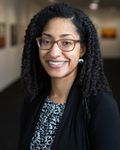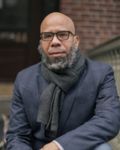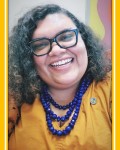ACLS Digital Justice Seed Grants

C. Joe Arun
Year:
- 2024
Loyola College, Chennai
“Sustaining Hereditary Knowledge of South Indian Frame Drummers through Digital Music-Mapping.”
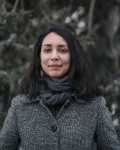
Maile Arvin
Year:
- 2024
University of Utah
Na Lei Poina 'Ole (Beloved Children Never Forgotten): Preparing a Digital Resource on the History of Child Institutionalization in Hawai'i

Jennifer Ashley
Year:
- 2022
George Mason University
The Afterlife of the 1988 Chilean Plebiscite (Chile 88)

Crystal Baik
Year:
- 2024
University of California, Riverside
Queer and Trans Viet Oral History Project

Sweta N. Baniya
Year:
- 2022
Virginia Polytechnic Institute & State University
Towards Digital Justice: Developing US Citizenship Application & Website with Refugees & Immigrants
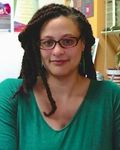
Alisa Bierria
Year:
- 2022
- 2024
University of California, Los Angeles
Inconceivable Agency: Race, Gender Violence, and the Carceral Imagination

András Blazsek
Year:
- 2024
State University of New York at Buffalo
Sounding Data Justice for Environmental Liberation in Southeast Queens

Emily Verla Bovino
Year:
- 2024
City University of New York, York College
Sounding Data Justice for Environmental Liberation in Southeast Queens

Barbara Brown
Year:
- 2024
Eastern Queens Alliance, Inc.
Sounding Data Justice for Environmental Liberation in Southeast Queens

Barrye Brown
Year:
- 2024
Schomburg Center for Research in Black Culture
Remaking the World of Arturo Schomburg

Nicole Charles
Year:
- 2024
University of Toronto, Mississauga
SUGAR ATLAS: Counter-Mapping Diabetes from the Caribbean
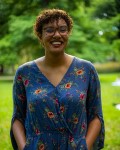
Sarah Coffman
Year:
- 2024
Rutgers University-New Brunswick
Mapping Black Freedom, Enslavement, and Activism in the Early Nineteenth Century

Stephen Robert Davis
Year:
- 2022
- 2024
University of Kentucky
The Personal Writes the Political: Securely Rendering Black Lives Legible Through the Application of Advanced Machine Learning (ML) to Anti-Apartheid Solidarity Letters
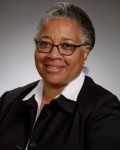
Phyllis Earles
Year:
- 2024
Prairie View A&M University
Digitally Exploring the Black and Brown Experience in Texas
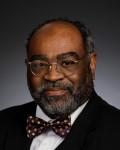
Ronald Goodwin
Year:
- 2024
Prairie View A&M University
Digitally Exploring the Black and Brown Experience in Texas
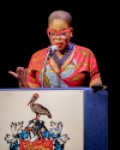
Tonya Haynes
Year:
- 2024
University of the West Indies, Cave Hill Campus, Barbados
SUGAR ATLAS: Counter-Mapping Diabetes from the Caribbean

Jason Heppler
Year:
- 2022
George Mason University
The Afterlife of the 1988 Chilean Plebiscite (Chile 88)

Jason Heppler
Year:
- 2022
George Mason University
The Afterlife of the 1988 Chilean Plebiscite (Chile 88)

Hernan Adasme Herrera
Year:
- 2022
George Mason University
The Afterlife of the 1988 Chilean Plebiscite (Chile 88)

Uyen Phuong Hoang
Year:
- 2024
Viet Rainbow of Orange County
Queer and Trans Viet Oral History Project

James Huynh
Year:
- 2024
University of California, Los Angeles
Queer and Trans Viet Oral History Project

Nathan Jérémie-Brink
Year:
- 2024
New Brunswick Theological Seminary
Mapping Black Freedom, Enslavement, and Activism in the Early Nineteenth Century

Nathan Jérémie-Brink
Year:
- 2024
New Brunswick Theological Seminary
Mapping Black Freedom, Enslavement, and Activism in the Early Nineteenth Century

Alana Kanahele
Year:
- 2024
University of Hawaii at Manoa
Na Lei Poina 'Ole (Beloved Children Never Forgotten): Preparing a Digital Resource on the History of Child Institutionalization in Hawai'i

Avis Kuuipoleialoha Poai
Year:
- 2024
University of Hawaii at Manoa
Na Lei Poina 'Ole (Beloved Children Never Forgotten): Preparing a Digital Resource on the History of Child Institutionalization in Hawai'i

Wallace Lages
Year:
- 2022
Virginia Polytechnic Institute & State University
Building an Institute for Empathic Immersive Narrative

Eric Lyon
Year:
- 2022
Virginia Polytechnic Institute & State University
Building an Institute for Empathic Immersive Narrative

Raju Maharajan
Year:
- 2024
University of Oklahoma
“Sustaining Hereditary Knowledge of South Indian Frame Drummers through Digital Music-Mapping.”

A. Manimaran
Year:
- 2024
Independent Scholar
“Sustaining Hereditary Knowledge of South Indian Frame Drummers through Digital Music-Mapping.”

Eliana Massey
Year:
- 2024
University of Utah
Na Lei Poina 'Ole (Beloved Children Never Forgotten): Preparing a Digital Resource on the History of Child Institutionalization in Hawai'i

William Mattingly
Year:
- 2024
Smithsonian Institution
The Personal Writes the Political: Securely Rendering Black Lives Legible Through the Application of Advanced Machine Learning (ML) to Anti-Apartheid Solidarity Letters

Amy Moran-Thomas
Year:
- 2011
- 2024
Massachusetts Institute of Technology
SUGAR ATLAS: Counter-Mapping Diabetes from the Caribbean

Ng'ang'a Wahu-Muchiri
Year:
- 2022
University of Nebraska-Lincoln
Recovering the Histories of Land Treaties in East and Southern Africa

Katrina Powell
Year:
- 2022
Virginia Polytechnic Institute & State University
Towards Digital Justice: Developing US Citizenship Application & Website with Refugees & Immigrants





